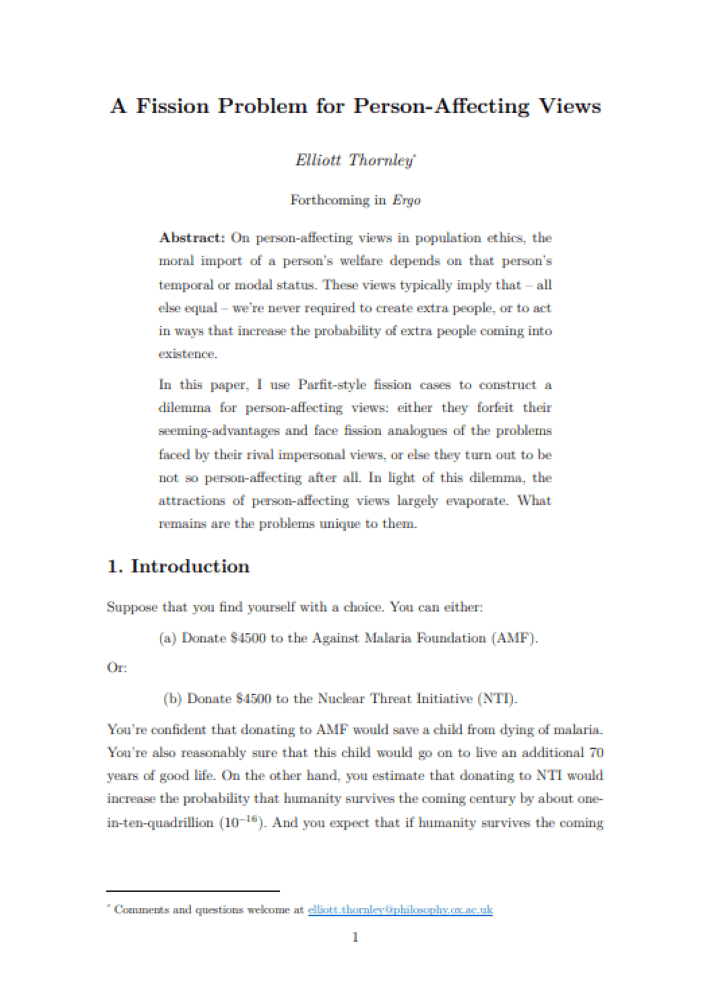A Fission Problem for Person-Affecting Views
Elliott Thornley (Global Priorities Institute, University of Oxford)
GPI Working Paper No. 26-2024, forthcoming in Ergo
On person-affecting views in population ethics, the moral import of a person’s welfare depends on that person’s temporal or modal status. These views typically imply that – all else equal – we’re never required to create extra people, or to act
in ways that increase the probability of extra people coming into existence.
In this paper, I use Parfit-style fission cases to construct a dilemma for person-affecting views: either they forfeit their
seeming-advantages and face fission analogues of the problems faced by their rival impersonal views, or else they turn out to be not so person-affecting after all. In light of this dilemma, the attractions of person-affecting views largely evaporate. What
remains are the problems unique to them.
Other working papers
Social Beneficence – Jacob Barrett (Global Priorities Institute, University of Oxford)
A background assumption in much contemporary political philosophy is that justice is the first virtue of social institutions, taking priority over other values such as beneficence. This assumption is typically treated as a methodological starting point, rather than as following from any particular moral or political theory. In this paper, I challenge this assumption.
Cassandra’s Curse: A second tragedy of the commons – Philippe Colo (ETH Zurich)
This paper studies why scientific forecasts regarding exceptional or rare events generally fail to trigger adequate public response. I consider a game of contribution to a public bad. Prior to the game, I assume contributors receive non-verifiable expert advice regarding uncertain damages. In addition, I assume that the expert cares only about social welfare. Under mild assumptions, I show that no information transmission can happen at equilibrium when the number of contributors…
Existential risks from a Thomist Christian perspective – Stefan Riedener (University of Zurich)
Let’s say with Nick Bostrom that an ‘existential risk’ (or ‘x-risk’) is a risk that ‘threatens the premature extinction of Earth-originating intelligent life or the permanent and drastic destruction of its potential for desirable future development’ (2013, 15). There are a number of such risks: nuclear wars, developments in biotechnology or artificial intelligence, climate change, pandemics, supervolcanos, asteroids, and so on (see e.g. Bostrom and Ćirković 2008). …

